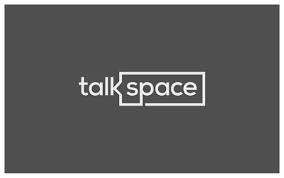Government Grants
Business Grants
Home Owner Programs
Federal Programs
About Us
Screening, Brief Intervention, and Referral to Treatment (SBIRT) Health Professions Student Training (SBIRT- Student Training)
The Substance Abuse and Mental Health Services Administration (SAMHSA), Center for Substance Abuse Treatment (CSAT) is accepting applications for fiscal year (FY) 2016 Screening, Brief Intervention, and Referral to Treatment (SBIRT) Health Professions Student Training (SBIRT- Student Training) grants.
The purpose of this program is to develop and implement training programs to teach students in health professions (physician assistants, dentists, psychologists, pharmacists, nurses, social workers, counselors, and medical students and residents) the skills necessary to provide evidence-based screening and brief intervention and refer patients who are at risk for a substance use disorder (SUD) to appropriate treatment.
Additionally, the training will develop the leadership skills needed in order to champion the implementation of SBIRT throughout the United States healthcare system with the ultimate goal of helping clients avoid substance use disorders.
The specialty substance use treatment system is often not appropriate, or is unavailable, to those who are at risk for SUD.
Therefore, the intended outcomes of this program are to increase the adoption and practice of SBIRT throughout the health care delivery system with the ultimate goal of helping clients avoid substance use disorders.
SAMHSA expects that SBIRT will be a component of the education curriculum for the identified programs in each academic year for the duration of the grant and an ongoing element of the academic curriculum post-grant award.
A key aspect of SBIRT is the integration and coordination of screening and treatment components into a system of services.
This system links a community's specialized treatment programs with a network of early intervention and referral activities that are conducted during health care delivery.
As shown by data collected from SBIRT cross-site evaluations (SBIRT Cohort I Cross-Site Evaluation Final Report, 2010), the vast majority of SBIRT service providers are health professionals such as physician assistants, dentists, psychologists, pharmacists, nurses, social workers and counselors.
While some physicians deliver SBIRT, physicians also often lead the effort through clinical work, advocacy, and supervising SBIRT service providers in medical settings.
This program will address workforce development by increasing the number of health care professionals who can address the needs of persons at risk for SUD.
The training also promotes the emphasis from the Affordable Care Act of a multi-disciplinary team approach to the integration of behavioral health into medical health care systems.
The SBIRT – Student Training program supports the SAMHSA Health Care and Health Systems Integration Strategic as well as Workforce Development Strategic Initiatives.
The SBIRT – Student Training program seeks to address behavioral health disparities among racial, ethnic, sexual and gender minorities by encouraging the implementation of strategies to decrease the differences in access, service use, and outcomes among the racial, ethnic, sexual and gender minority populations served.
(See PART II:
Appendix F – Addressing Behavioral Health Disparities.) The SBIRT – Student Training grants are authorized under Section 509 of the Public Health Service Act, as amended.
This announcement addresses Healthy People 2020 Substance Abuse Topic Area HP 2020-SA.
The purpose of this program is to develop and implement training programs to teach students in health professions (physician assistants, dentists, psychologists, pharmacists, nurses, social workers, counselors, and medical students and residents) the skills necessary to provide evidence-based screening and brief intervention and refer patients who are at risk for a substance use disorder (SUD) to appropriate treatment.
Additionally, the training will develop the leadership skills needed in order to champion the implementation of SBIRT throughout the United States healthcare system with the ultimate goal of helping clients avoid substance use disorders.
The specialty substance use treatment system is often not appropriate, or is unavailable, to those who are at risk for SUD.
Therefore, the intended outcomes of this program are to increase the adoption and practice of SBIRT throughout the health care delivery system with the ultimate goal of helping clients avoid substance use disorders.
SAMHSA expects that SBIRT will be a component of the education curriculum for the identified programs in each academic year for the duration of the grant and an ongoing element of the academic curriculum post-grant award.
A key aspect of SBIRT is the integration and coordination of screening and treatment components into a system of services.
This system links a community's specialized treatment programs with a network of early intervention and referral activities that are conducted during health care delivery.
As shown by data collected from SBIRT cross-site evaluations (SBIRT Cohort I Cross-Site Evaluation Final Report, 2010), the vast majority of SBIRT service providers are health professionals such as physician assistants, dentists, psychologists, pharmacists, nurses, social workers and counselors.
While some physicians deliver SBIRT, physicians also often lead the effort through clinical work, advocacy, and supervising SBIRT service providers in medical settings.
This program will address workforce development by increasing the number of health care professionals who can address the needs of persons at risk for SUD.
The training also promotes the emphasis from the Affordable Care Act of a multi-disciplinary team approach to the integration of behavioral health into medical health care systems.
The SBIRT – Student Training program supports the SAMHSA Health Care and Health Systems Integration Strategic as well as Workforce Development Strategic Initiatives.
The SBIRT – Student Training program seeks to address behavioral health disparities among racial, ethnic, sexual and gender minorities by encouraging the implementation of strategies to decrease the differences in access, service use, and outcomes among the racial, ethnic, sexual and gender minority populations served.
(See PART II:
Appendix F – Addressing Behavioral Health Disparities.) The SBIRT – Student Training grants are authorized under Section 509 of the Public Health Service Act, as amended.
This announcement addresses Healthy People 2020 Substance Abuse Topic Area HP 2020-SA.
Related Programs
Substance Abuse and Mental Health Services_Projects of Regional and National Significance
Department of Health and Human ServicesObtain Full Opportunity Text:
Screening, Brief Intervention, and Referral to Treatment (SBIRT) Health Professions Student Training (SBIRT- Student Training)
Additional Information of Eligibility:
Eligible applicants are public and private universities, colleges, and medical residency programs that have or are affiliated with programs for medical students, psychologists, pharmacists, dentists, physician assistants, nursing, social work, and/or counseling.
Current grants awarded under the SBIRT Health Professionals Student Training grants (TI-15-001) are not eligible to apply because they are currently receiving funding for this program.
In addition, eligibility is being restricted because SAMHSA seeks to further expand the impact of the SBIRT- Student Training program across the nation and to a variety of academic institutions.
Eligibility is restricted to these entities because they train health professions students who are most likely to implement SBIRT services to persons at risk of substance use disorders.
These programs have the capacity and structure to train health care personnel in delivering SBIRT services to clients across the range of medical services provision.
SAMHSA believes that these entities have the necessary expertise and teaching structure to best provide training of these health care professions students in delivering SBIRT clinical services.
Full Opportunity Web Address:
Contact:
Agency Email Description:
Agency Email:
FOACMHS@samhsa.hhs.gov
Date Posted:
2015-11-05
Application Due Date:
2016-01-04
Archive Date:
2016-02-03
Social Entrepreneurship
Spotlight
3 Social Enterprises Earn Honors at Social Enterprise Award

Three social enterprises were recognized at the 2013 President’s Challenge Social Enterprise Award for their major contributions to society. SATA CommHealth and Bliss Restaurant landed Social Enterprise of the Year titles, while Bettr Barista Coffee Academy bagged the award for Social Enterprise Start-up of the Year.

